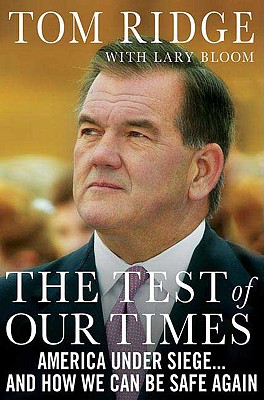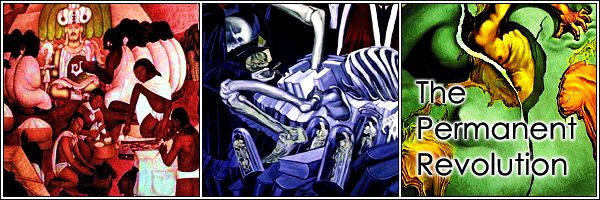There is however also the inevitable absurd Zakarian phrase. Responding to a poll saying that 72% of Chinese believe one does not need to have belief in God to be moral, he says of this: "The point is not that [China] is immoral—in fact all hard evidence suggests quite the opposite—but rather that in [China] people [do not] believe in God. This might shock many in the West [...]." How earnest! I cannot comment on the "hard evidence" suggesting the Chinese are not more evil than other peoples. From Europe, however, not wholly godless but well-acquainted with concepts of "secular humanism," one can only wonder wonder what "West" he is talking about.
The chapter on India (imaginatively entitled "The Ally"), while also filled with useful tidbits, is actually a fairly dire failure. It often borders on total incoherence. I don't know if this is the written manifestation of the struggle between Zakaria's Muslim Indian background (which he scarcely mentions in his writings) and his adoption of American citizenship (with the zeal of the converted). The chapter is perhaps the most misleading, if not self-deceiving, in that he forces us (and himself) to see an unconvincingly strong natural kinship between the U.S. and India. He sometimes gives the impression the latter country is a really a sort of embryonic, Hindu America that by some accident found itself attached to Asia. He sees a U.S.-India "special relationship" emerging of the sort normally reserved for the United Kingdom and Israel. While this is not an implausible possibility, his evidence his weak. He bases his argument partly on the notion that democratic India is a society which has "asserted dominance over the state." This condition is the subject of Zakaria’s very first book (From Wealth to Power), which quite eloquently explained the rise of the U.S. in the nineteenth century in terms of having a weak state and strong society. (In contrast, again, to the "predatory," warring states of Europe of that time.) He sees Indian-Americans being a bridge between the two countries in a way which (more numerous) Chinese-Americans apparently cannot be. But then problems begin. "The country might have several Silicon Valleys, but it also has 3 Nigerias". It ranks 128th out of 177 in the Human Development Index. Female literacy stands at 48%. We are talking of "a country of rampant poverty, feudalism, and illiteracy." The Indian elite was self-consciously socialist from independence onwards, sporting a very "mixed" economy in every sense, and whose "many intellectuals and journalists [...] are well-schooled in the latest radical ideas - circa 1968, when they were in college."
Yet despite all this Zakaria finds the chutzpah to claim in a single, unqualified statement: "If Indians understand America, Americans understand India." Unfathomable. It seems too absurd to consider that an American society centered on consumption as an end in itself could "understand" a country where abject poverty is not only rampant but, in some cases, held up as a Gandhian ideal. It is not explained how Americans "understand" a country which at once has an extremely diverse population of over 1 billion inhabitants and receives scarce media coverage in America. Certainly American leaders did not "understand" Indians in the decades after independence, when New Delhi adhered to a strict anticolonial line on issues like Indochina and to Moscow-leaning neutrality in the Cold War. Indeed, as Republicans tar every opponent with the brush of "Socialism," and Liberals defensively deny they are guilty of such apostasy, can it really be said America can "understand" a country like India which not only has a proud Socialist tradition but indeed has several states (West Bengal, Kerala, Tripura) that still consistently elect Communist governments? Indeed, that Indian democracy is continental, multiconfessional, multilingual (17 languages, 22,000 dialects), featuring "multiple regional elections," not true national ones, suggests greater affinity for (and a vote of confidence in) embryonic pan-European democracy than what exists in the United States. Pace Zakaria, how could we not come to the conclusion that this great Indian-American consanguinity is no more than the imaginative projection of an enthusiastic immigrant's failure to come to terms with his own inevitably fractured identity?

Indian Communists in Kerala pay homage to Soviet socialist realism.
The final parts of the book are dedicated to what America's place in this new "globalized" world of economic equals should be. The discussion is informed first by the tired comparison with the British Empire. And here, Zakaria freely indulges in his penchant for silly phrases and inaccuracies. What does it mean to say that the failed British attempt to keep the Thirteen Colonies of North America over eight years, at a high cost in blood and treasure, was a "strategic masterstroke"? Can it be said of the 1899-1902 Boer War that it "broke of the back of [the British] empire," when that entity continued merrily along for another half-century? Indeed, what to make of the statement that "London played its weakening hand with impressive political skill" during the postwar years? While Britain's decolonization was not as traumatic an experience as that of France, one would have to forget that British "strategy" for managing its decline was more often than not to sloppily flee whatever area got too troublesome - India, Palestine, Greece - often leaving problems that remain with us today. And how can such "impressive political skill" be squared with the humiliation at the hands of the Americans at Suez in 1956?

Typical right-wing American literature (and the two that follow).
Nonetheless, Zakaria's substantive discussion of the future of American power is more insightful. The U.S. will continue its demographic growth through immigration and procreation. Although the Iraq War was the "apogée" of a kind of American power, the country will likely maintain a near monopoly on intercontinental military power for some time to come. America will remain the "indispensable nation," to use Madeleine Albright's phrase, for any question needing international concertation. The problem becomes one of encouraging America's better instincts. That the country not be tempted to use its power for selfish ends. He urges against empire, for an acceptance of rising powers, and recommends behavior like that of Franklin Roosevelt and George H.W. Bush. He cites the ineffectiveness of military force in the asymmetrical fight against terrorism ($1 trillion having been spent on military means and only $10 billion on civilian ones). Hozever, to a nation with military power, the imperial temptation is inevitable: "To a man who has a hammer, every problem looks like nails."

The answers are unclear. Zakaria says we need "(international) legitimacy" on issues from climate change to Darfur which leads to the problem of "how to get people to agree?" In all this hangs ever-heavily the question of the Iraq War. How can a just international system be established given the preponderance of American power, its ability to start wars in regions regardless of its inhabitants' feelings on the subject, and indeed drag numerous European governments along for the adventure despite the protests of their own citizens? He has no answer to this or to his own support for the Iraq War (like so many other "good Liberals," see Hoffmann vs. Zakaria and Tony Judt's "Bush's Useful Idiots"). He limits himself to a long, awkward footnote on his support of the invasion, with retrospective caveats on having a "larger force" and "international sanction". The recommendations and questions are not accompanied by anything on how a less imperial America and a more balanced world might be practically achieved. He does not suggest (say) that the inhabitants of regions affected by the U.S. should have a veto on the policies supposedly done in their name. Zakaria is reduced to pleading against the concept of eternal war in the name of total security: "We will never be able to prevent a small group of misfits from planning some terrible act of terror." He shows incomprehension towards "chest-thumping hysteria" and the fact that "[t]he strongest nation in the history of the world now sees itself as besieged by forces beyond its control." He advises, "the United States must make a much broader adjustment. It needs to stop conveying fear."

But this is only the beginning, for there are two Americas: the one Zakaria thought he joined and the one that exists. He is extremely critical of political realities in the U.S. which might as well be called "decadent". We have an "irresponsible national political culture" that is "proud to be despised abroad". The capital, "D.C., has become a bubble; smug and out of touch with the world outside." A venerable political system has been "captured by money, special interests, a sensationalist media, and ideological attack groups." At the same time, Zakaria waxes lyrical about America being "the first universal nation," on account of its acceptance and successful integration of huge numbers of immigrants from all corners of the world (indeed, an impressive feat). In contrast, he sees a defensive, selfish, narrow-minded America emerging. He writes of first moving to the U.S. as an 18-year old student: "America was a strikingly open and expansive country. Reagan embodied it." Yes Reagan, of all presidents, incarnated America's more broadminded and cosmopolitan side! There is something ridiculous in Zakaria's disappointed expectation that as America "globalized the world, it forgot to globalize itself." There is a strange, lame and almost pathetic quality to these observations and pleadings. The book concludes thus:
For America to thrive in this new and challenging era, for it to succeed amid the rise of the rest, it need fulfill only one test. It should be a place that is as inviting and exciting to the young student who enters the country today as it was for this awkward eighteen-year-old a generation ago.
Is one reading of a country, or a man who having married a girl under the intoxicating influence of love, rolls over some time later to discover that she was not without flaws and vices, not the picture of perfection he had imagined? Actually, the triumphs and idiosyncrasies of America are closely linked to it being an insular and indeed extremely parochial nation. But for Zakaria, evidently, "universal nations" speak English (and are wary of the creeping bilinguality from southern neighbors that might one day plague them like their northern neighbor), use only the Imperial System (alone, Zakaria notes, with Liberia and Myanmar), park their SUVs in pleasant suburbs (preferably in California), they don't know what's happening abroad (dramatized by this TED presentation), and "soccer" is certainly not the national pastime of predilection (but any number of sports with little appeal beyond North America can still have the qualitative "world" in the titles of their tournaments). In fact, the more the inhabitants of any country tout its "universality," the more they believe that their own little fraction of humanity is indeed the sum of human existence, the less they feel a need to interest themselves in the affairs and lives of those beyond their borders. Zakaria has forgotten that America is a really existing nation, which is to say a group of people, and not an idea that exists in the sublime abstractions of the mind.

A naturalization ceremony. Also see the 7-minute video Disney produced that U.S. customs shows at international airports.
Ultimately, the book never escapes its contradictions. The first between the "acultural," "universal" America of Zakaria's immigrant imagination (the one made up of lovely words like "democracy," "freedom" and "rule of law") and the America of really really existing human beings with their inevitable flaws, idiosyncrasies and particularities (Black, White, Southern, rural, working class, Establishment, hippie, Baptist...). The second tension, less personal and more conceptual, between Zakaria as a prophet of the triumph of the Third World (Fanon) and of the ideal of Western liberal capitalism (Fukuyama). His love for the ideal means he cannot bring himself to condemn the means for its propagation: centuries of European colonialism and hegemony in the Third World. There is a singular lack of engagement. Read Zakaria and one almost wonders if Indians should thank the British for conquering their land and, though leaving it in the same condition of abject poverty after 100 years of rule, at least in the meantime having taught them the good sense of speaking English (and the worship of melanin-deficiency). Was it beyond the imagination to suggest that the benefits of technical progress from West could (should) have been spread in the rest of the world without being subjugated by that civilization (indeed, following the Japanese example)? In the same vein, for all his talk of the universal interests of mankind, Zakaria has no answer to all the questions posed by the necessarily parochial and self-interested character of American power. His curious conception of national identification (parochial) leads him to total moral abdication (universal): "The Iraq War may be a tragedy or a noble endeavor, depending on your point of view." The latter may be a question of subjective experience but the former is not in doubt.

Not much remains after all this. For if the portraits are clichéd, the generalizations crude, and the critical engagement absent, what is the point of reading Fareed Zakaria? At the least, he has identified the most important development of our time and worked hard to discredit the false and pernicious narrative of the "Long War". In that sense he plays an important role in American political discourse. But he has come rather late. Asia has been "rising" for three decades. Its does only so much good to condemn the War on Terror after singing its praises all the way past the Rubicon. For this book at least, I do not think posterity will judge Zakaria to be much more than a Johnny-come-lately and the uncritical cheerleader of a era, someone who was incapable of asking the hard questions, let alone even beginning to answer them. 









